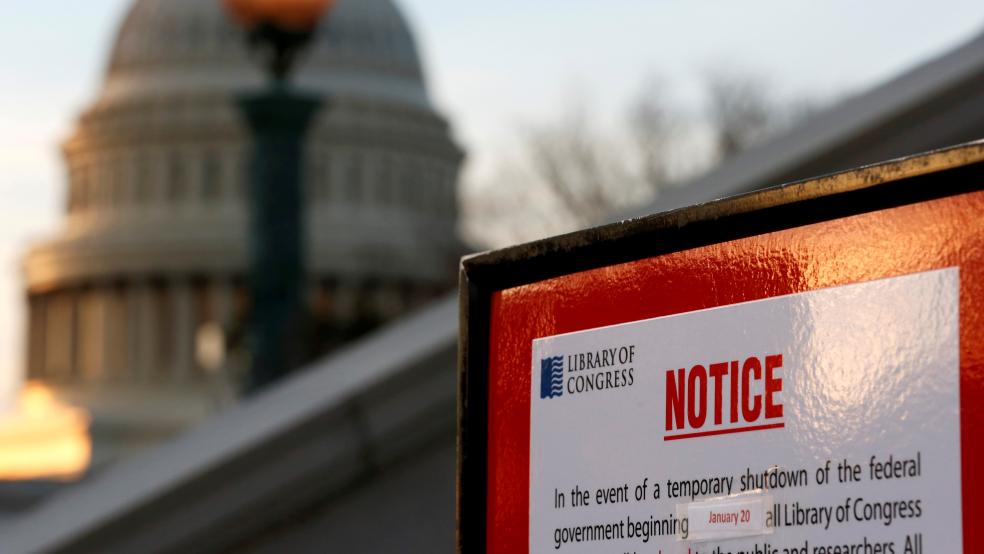The government shutdown might be over, but there’s still a chance we’ll face another one — or the threat of one — next month as the political drama plays out on Capitol Hill. And if it doesn’t come to that this year, it may only be a matter of time before Congress shuts down the government again.
Is there any way to avoid these confrontations? One option highlighted by Ramesh Ponnuru in Bloomberg View Monday involves automatically maintaining government spending in the event of a funding dispute in Congress.
Sen. Rob Portman (R-OH) has been promoting such a law for years, but Congress has never approved his amendment to create an “automatic continuing resolution.”
One problem with Portman’s approach is that it not only extends funding automatically but also starts cutting spending as a given dispute continues, with a 1 percent budget cut kicking in at the 120-day mark, and additional 1 percent cuts every 90 days thereafter.
The political problem with this approach is obvious, since such a bill could encourage conservatives who want to cut government spending to walk away from budget negotiations, letting automatic cuts enact their policy preferences.
Ponnuru notes that the rules could be tweaked to eliminate automatic cuts, substituting flat or even rising spending levels as disputes drag on, but other critics have found a more basic problem: An automatic spending bill could make the appropriations process even harder since there’d be no shutdown threats to force compromises. “Relying upon automatic CRs rather than passing regular appropriations bills also would reduce government efficiency, since it would keep Congress from moving resources from less effective programs to more effective ones,” the Center for Budget and Policy Priorities wrote in a review of Portman’s proposed legislation in 2013.
Shutdowns might be harmful and costly, but the threat of shutdowns can serve a useful purpose.




